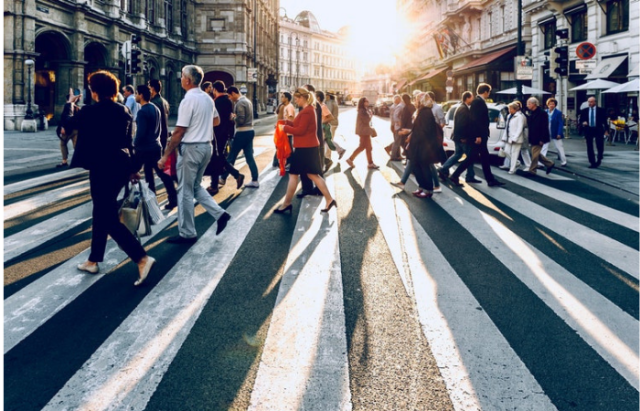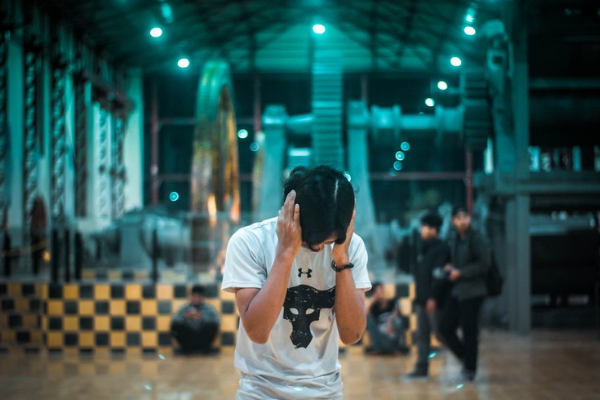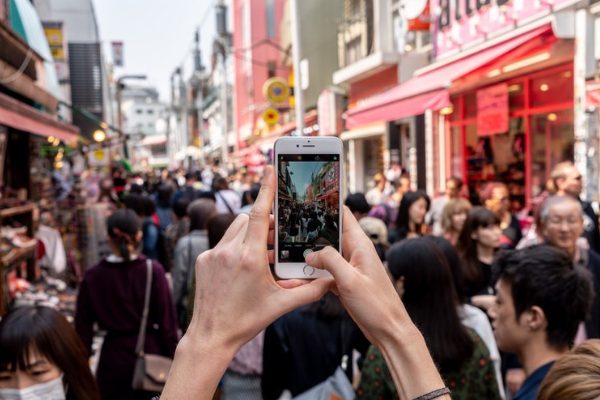Where Is Everyone?

If you’ve ever traveled outside of the US, the UK or another Western country, you may have been struck by the sense of community that seems to have disappeared from our modern westernized world. Or if you haven’t, think about the books you’ve read that took place in the past.
People would go visit their neighbors and chat for hours or help them with farm work. Relatives and friends would visit one another for months. Communities would surround those in their group that needed help and provide them with support and care. Children left their parents only when they got married and then took in their elderly parents later to support them.
People had people. Many cultures still retain this support system. Arranged marriages, whole families living together, etc.
In Asian culture, it’s much more acceptable for adult children to live with their parents until they are married. It isn’t looked down upon as weak or dependent like it often is in the US or UK.
In the Amish community in the US, if someone in the community needs help, the whole community will provide that help. If there’s a fire, the community will be there to rebuild.
The idea of homes for the elderly is practically unheard of in certain parts of the world as children are expected to take their in parents once they’re too old to care for themselves.
The messages we’ve heard

Some of these things sound ridiculous or at least unimaginable to the Western ear. We wouldn’t want to live with our parents for the rest of our lives. That just doesn’t fit into our framework. We couldn’t stomach the thought of an arranged marriage or forced (expected) childbearing.
Our western world is one of individualism. The US, in particular, has a very much “pick yourself up by your bootstraps” kind of mentality. You must depend on yourself to achieve your goals and succeed in life. To be the creator of your own way and your own success is power and strength.
If you’ve grown up in that kind of environment, these are the messages you’ve most likely received:
-You don’t need anyone else.
-Needing is weak and desperate.
-As soon as you’re able, start taking care of yourself.
-It’s a source of pride to have a lot of accomplishments.
-Wealth and power and success (defined by our culture) are what makes a person happy.
-Closeness and intimacy can show your weak spots.
That doesn’t mean these messages are always wrong. We have accomplished much with this kind of mentality. But, at the same time, many of us have lost all connection to the tribal feeling of our past.
Since the dawn of civilization, we’ve been living in tribal communities. Each person with a job, each person belonging and working towards a common goal, and people sharing common beliefs, aiding each other, and growing with each other.
Now, we’ve broken apart
We achieved goals separately, often at the expense or loss of others. The resulting feeling many people are experiencing is… where is everyone?

While social media has flooded our lives, supposedly intended to bring about a closer connection, it left out a very important element: deep intimacy. The connections we have now are more shallow than they’ve ever been.
People are so busy taking selfies, trying to prove they have great lives or getting a whole list of friends that they have missed out on having real and true friends. You can use it as a mask to hide what’s really going on.
This is where those messages come through: Don’t show weakness, show your accomplishments because that’s what shows you’re worth something.
Instead of connection and a seemingly infinite supply of friendships, many have been left with increasing loneliness and isolation. Dr. Jennifer Caudle, assistant professor at Rowan University School of Osteopathic Medicine took part in leading a study on loneliness. Their research concluded that 72% of Americans experience recurring loneliness. Over one-third of the population in the UK experiences loneliness as well.
“Too much time spent on computers and mobile devices can add up. Loneliness is ‘an invisible epidemic’ masked by people’s online personas, which rarely reflect real emotions.”
It’s an invisible epidemic that is slowly increasing the more we begin to hide away behind the protection of social media and the achievement of innumerable accomplishments and more.
Individualism Today: Why does it matter?
This may seem like a silly question, but it is a fair one. If we value individualism today and see it as a strength, then why should it matter if we are isolated or feeling lonely?
Maybe that’s fine and we just need to get stronger. But, unfortunately, loneliness is bad for your health.
Not only is feeling lonely unpleasant and discouraging, but it can also affect your physical body. Remember: our minds and bodies are inextricably linked!
Studies have found that chronic loneliness can be just as bad for you as smoking or obesity, and is 29% more likely to cause early death!
It’s unbelievable to think that something we feel in our minds and inner worlds can have such an effect on our physical body and can actually hurt us or kill us! But, that’s why it’s so important to care about our spiritual and emotional selves because everything about us affects our health and well-being.
Now, evolution as a species has occurred. We don’t necessarily need to return to the way our ancestors had lived as a tribal community. It won’t quite work anymore for us. But, we can pay attention to some of those needs simply because we are human.
Don’t isolate yourself. Find friends and a community that brings you joy, contentment, help, love, and support! If you view the game of life as a multiplayer universe, a community, and a tribe, then magic happens.
What to do if you’re lonely
Reconnect
You are your own friend. As a friend, you need to help yourself.
If you’re feeling lonely and isolated, fight back against your strong individualism today and get involved in something. Whether it’s church, sports, fitness classes or book club, it will help you remember that there are others out there. It’s important to step outside of your comfort zone. That way you can grow and you will have people nearby to help you, too!
Cleanse
There does seem to be a connection with the more social media use there is, the more loneliness fills us. Maybe take a break from the constant onslaught of Instagram photos and Facebook posts pretending to showcase a life better than your own.
Exercise

Exercise is a crazy game-changer. It can turn a bad day into a good one or a depressing life into a happy one or at least one with hope.
Before resorting to medication or other things to help alleviate your symptoms of sadness and loneliness, start exercising. It can give you a floor from which you can make more rational, effective decisions. It can help give you that feeling of peace, too.
See Also: How To Find The Time To Workout Every Day
Focus on others
Maybe you can think of ways to add value to the universe and get involved in helping others. Consider charity work, volunteer work or simply doing kind gestures for neighbors or coworkers.
When people around feel you are helping them, they see you as a friend rather than competition. Your vibe attracts your tribe!
Bibliography:
I feel lonely. What can I do? (n.d.). Retrieved from https://www.campaigntoendloneliness.org/feeling-lonely/
Loneliness Research. (n.d.). Retrieved from https://www.campaigntoendloneliness.org/loneliness-research/
Marcus, M. B. (2016, October 13). Feeling lonely? So are a lot of other people, survey finds. Retrieved from https://www.cbsnews.com/news/many-americans-are-lonely-survey-finds/
Social Isolation: A Modern Plague. (n.d.). Retrieved from https://www.psychologytoday.com/us/blog/the-depression-cure/200907/social-isolation-modern-plague
The Pain of Modern Life: Loneliness and Isolation. (2017, November 22). Retrieved from https://www.nationofchange.org/2015/07/04/the-pain-of-modern-life-loneliness-and-isolation/




